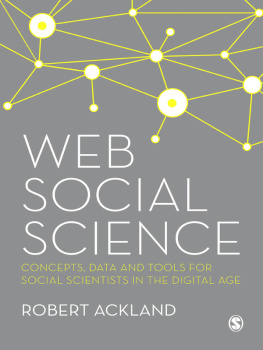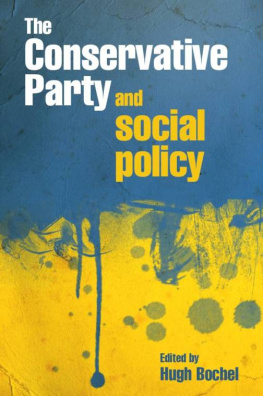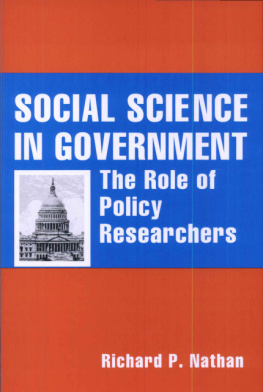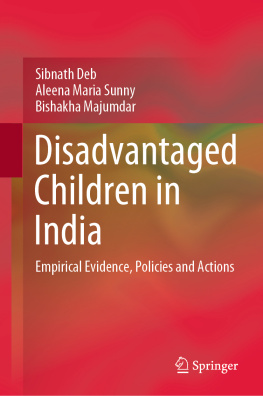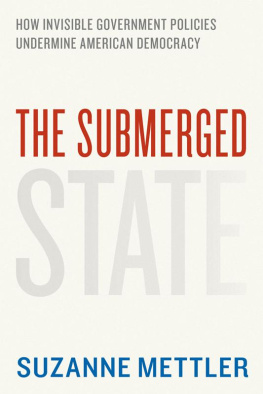First published 2006 by Transaction Publishers
Published 2017 by Routledge
2 Park Square, Milton Park, Abingdon, Oxon OX14 4RN
711 Third Avenue, New York, NY 10017, USA
Routledge is an imprint of the Taylor & Francis Group, an informa business
Copyright Ralph L. Beals.
New material this edition copyright 2006 by Taylor & Francis.
All rights reserved. No part of this book may be reprinted or reproduced or utilised in any form or by any electronic, mechanical, or other means, now known or hereafter invented, including photocopying and recording, or in any information storage or retrieval system, without permission in writing from the publishers.
Notice:
Product or corporate names may be trademarks or registered trademarks, and are used only for identification and explanation without intent to infringe.
Library of Congress Catalog Number: 2005043543
Library of Congress Cataloging-in-Publication Data
Beals, Ralph Leon, 1901
Politics of social research / Ralph L. Beals ; with a new introduction by Alan Woolfolk.
p. cm.
Originally published: Chicago : Aldine Pub. Co., 1969. With subtitle: An inquiry into the ethics and responsibilities of social scientists.
ISBN 0-202-30834-0 (alk. paper)
1. Social sciencesResearchUnited States. 2. Social sciences and stateUnited States. 3. Social scientistsProfessional ethicsUnited States. I. Title.
H62.B353 2005
300.72073dc22 2005043543
ISBN 13: 978-0-202-30834-0 (pbk)
Introduction to the AldineTransaction Edition
Ralph L. Beals (19011985) holds a distinguished place among the ranks of American anthropologists. As a noted scholar of the cultures of Latin America, a leading figure of the American Association of Anthropology, a guiding influence in the transformation of UCLA into a world-class university, and an exemplar of academic integrity, Beals left his mark as an institution-builder and educator in the social sciences from the early 1930s into the 1970s through the force of an intellect and character grounded in a liberal faith in the scholarly ideals of freedom, honesty, and autonomy. Although this liberal faith can no longer speak with the same confident authority that Beals did during an earlier era of trials in Politics of Social Research: An Inquiry into the Ethics and Responsibilities of Social Scientists (1969), this work stands as an instructive theoretical and historical document. It may be read, in particular, as an effective counter argument to Alvin Gouldners case for a reflexive sociology in The Coming Crisis of Western Sociology (1970). Equally important, it serves as a continuing reminder of both how much and how little pivotal issues in the social sciences have changed in the intervening years.
The liberal social conscience that defined Beals character is immediately apparent upon first reading this classic statement of an ethic of responsibility for social scientists, which was forged amidst the heated political and social turmoil of the 1960s. On the surface, this statement appears to share much in common with Max Webers Science as a Vocation (1919) with its attention to the implications of scientific progress and specialization, and its attempt to delineate the proper relations between science and politics. But where Weber raised disturbing questions about the ultimate meaning of scientific efforts in the modern world, placing them against a cultural horizon of disenchantment, Beals took for granted that the declared purpose of the social scientist was the increase of knowledge in the ultimate service of human welfare (p. 2). Consequently, Beals implicit injunction to social scientists to meet the demands of the day did not grow out of anything resembling the pathos (Protestant or otherwise) from which Weber suffered and which underlay Webers explicit injunction to meet such demands. And yet, in his American way, Beals did resemble Weber in Politics as a Vocation (1919) in his defense of an ethic of responsibility within the social sciences that aimed to prevent the corruption of the social scientist through either an uncritical political involvement or an irresponsible disengagement from politics.
Beals contended that the social scientist is inevitably enmeshed in politics in a variety of ways, ranging from the sources of financial support for research, which are frequently governmental, to the policy implications of research and questions of patriotism. Just as Webers responsible political leader must take into account the unintended consequences of actions illuminated by social science, so Beals responsible social scientist must take into account the political implications of social research in both the national and international arenas. Indeed, Beals opens this study with a discussion of the so-called Snchez and Camelot affairs, both of which unfolded in the international arena during the 1960s and clearly helped to prompt the writing of Beals study. In the Snchez affair, the work of Oscar Lewis, in particular his case study of a poverty-stricken family in The Children of Snchez: Autobiography of a Mexican Family (1961), came under a misleading and unfair attack in the Mexican press during 1965 for its explicit portrayal of the conditions of Mexican poverty. In the case of Project Camelot, an ill-conceived international research project sponsored by the Army Research Office of the United States became the subject of an intense international controversy centered in Chile during the same year.
Neither case can be understood in isolation from the supercharged international political atmosphere of the time contributed to by the United States escalation of the Vietnam War and its strained relations with Latin America brought about by the invasion of the Dominican Republic and other recent events. But as both Beals and Irving Louis Horowitz in The Rise and Fall of Project Camelot (1967) have made clear there was a lack of clarity and a conflict of purposes, a problem with the relationship between pure and applied social science, which was apparent in Project Camelot from the beginning but not present in the Snchez affair. (Curiously, Beals does not discuss the extended controversy that emerged among social scientists in the United States during the 1960s over the culture of poverty thesis, which was originally advanced by Lewis in his work on Mexico and later adapted to the analysis of poverty in the United States by scholars such as Edward Banfield.)
With respect to the Snchez affair and Project Camelot, Beals identified the freedom and the autonomy of the social scientist as the fundamental issue at stake:
My assertion is that social research is significantly involved in politics, nationally and internationally and that Camelot and the Snchez affair are symptoms of this involvement. Camelot dramatized the dangers of political involvement for social research internationally. The Snchez affair demonstrated that research on internal issues of great political sensitivity can create problems nationally. In both the more fundamental issue is whether social science should be the handmaiden of government or strive for freedom and autonomy. In a deep sense this question also involves responsibility of the researcher for the application of his results and the relative importance of applied and basic research (p. 16).


